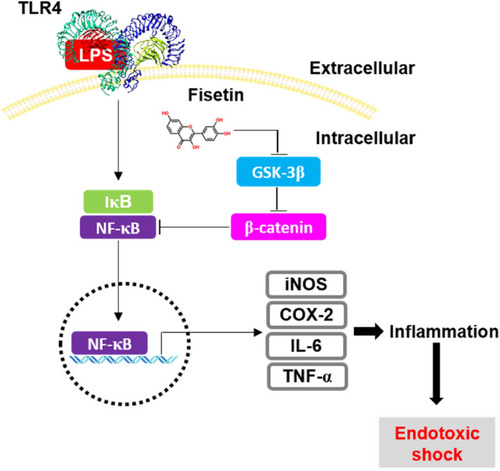Figure 9
- ID
- ZDB-FIG-210424-14
- Publication
- Molagoda et al., 2021 - Fisetin inhibits lipopolysaccharide-induced inflammatory response by activating β-catenin, leading to a decrease in endotoxic shock
- Other Figures
- All Figure Page
- Back to All Figure Page
|
Fisetin inhibits GSK-3β-mediated NF-κB activation in the presence of β-catenin, leading to the inhibition of inflammation-induced septic shock. Once macrophages are exposed to high concentrations of the bacterial endotoxin, LPS, they initiate an inflammatory response and endotoxic shock by upregulating the expression of NF-κB-induced inflammatory genes, such as |

